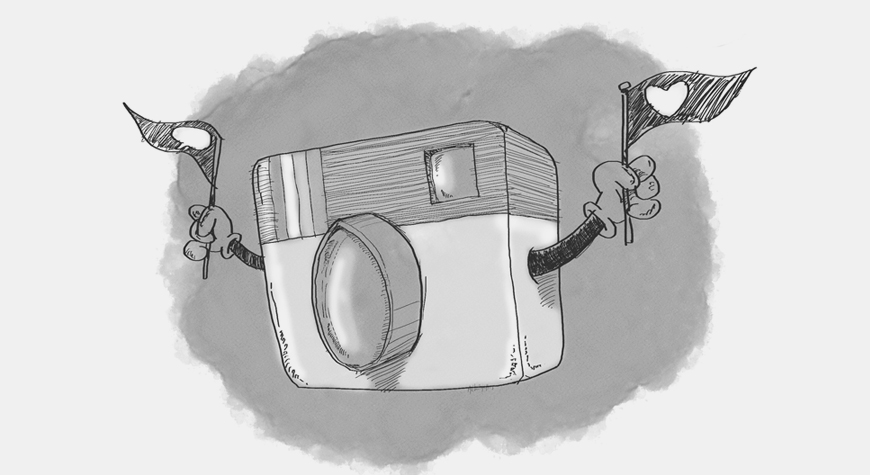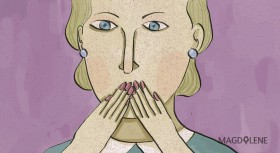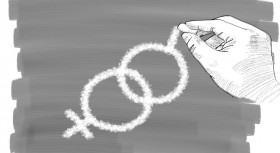Of all the social media sites that I’ve joined, I find Instagram the most gratifying. I don’t have to put up with mundane and over-shared status updates; the tweet-war or, worse, “kultwit” (a series of short lectures on things we can actually find in Wikipedia); and smart-asses trying too hard to spout one-liners.
To me Instagram is a no-nonsense platform—just people sharing photos and videos.
I love to browse pictures of places I’ve never been in, see what goes on behind the scenes of stories and events from the eyes of photojournalists around the globe, and, of course, take a peek (read: stalk) into the lives of my favorite rock stars, Hollywood actors and other celebrities.
I get to be creative with the numerous apps to edit the pictures I post on Instagram as well, even if my penchant for taking pictures of our food at restaurants often annoy my husband (“Hurry up, Annie Leibovitz, I’m hungry,” he groans). But the efforts are worth it when renowned photographers “like” my pictures (keywords: exotic objects like auto-rickshaw or street vendors).
So I was intrigued to find out that First Lady Kristiani Herawati Yudhoyono, an avid photographer, joined Instagram early this year through her account @aniyudhoyono. Her pictures are not my favorites, as they are more of landscape and nature. I had actually hoped her photos would provide a daily insight into life at the top, beyond photo-ops of a first family who like to dress up in matching outfits.
But I was surprised to read that she manages the account herself instead of having it taken care of by her staff. Ibu Ani seems to take time to write bilingual captions, give replies, and drop some comments on pictures posted by her sons and her daughters in law (did I mention my stalking tendency?). She loves Instagram so much that the First Lady hosted a gathering with fellow Instagram users, and posted the pictures.
However, she seems to forget that when you open yourself up in social media, you cannot be thin skinned, as comments can get out of control. Things got messy, and juicy, recently when she was embroiled in a heated debate with some of her followers who questioned whether she touched up one of her photos. In the end she relented and said it was up to the viewers to judge her photos.
Again, last week, the First Lady was fuming when one of her Instagram followers made a comment about her family’s fashion choice, even telling him that his comment showed what a stupid person he was.
The commenter appeared to feign obsequiousness in his reply, “Yes, Ma’am, I am probably a stupid Indonesian. I hope you can enlighten me so I can be as smart as you.”
In both episodes, the media were quick to pick up the online scuffles involving the hypersensitive First Lady. Still this does not seem to have dampened her eagerness to post pictures on Instagram.
Her husband President Susilo Bambang Yudhoyono shares the same passion for social media, with his robust Twitter feed, signing *SBY* after every tweet he authors. He likes people to think that he listens to the voice of people in the social media network as well, even going as far as publicly scolding his own aides. Once he berated his cabinet ministers over their failure to solve the exorbitant food price commodities.
“It’s too long, I’m impatient. As impatient as the people. Do you see the market or not? Do you observe the social media or not?” he said.
Interestingly, the newfound love for social media, particularly Twitter, is also shared by leaders of Latin American countries, such as Argentinian President Cristina Fernandez, Cuba’s Nicolas Maduro, Colombia's Juan Manuel Santos and Mexico's Enrique Pena Nieto. And like the Indonesian president and his wife, they all write and publish most of the messages themselves, which on some days numbering in dozens. President Cristina Fernandez at one time sent 61 tweets in a nine-hour period, according to Thomson Reuters news agency.
Perhaps it is an exciting novelty for leaders of formerly (or still) authoritarian countries to find a new platform to express themselves. And being relatively new democracies, they don’t always react gracefully when confronted with direct criticism through social media, at times even overreacting.
The robust Twitter feeds from the Latin American leaders have sparked the debate on whether they share too much, making politics more polarized, creating more personal confrontations and simply making them look awkward.
Maybe it’s to remind us that leaders, politicians and first ladies are also humans, who, like the rest of us, find some sort of escapism through social media. But when they spend so much time to tweet or update their Facebook status, it raises a question of whether they may not spend enough time governing.
Perhaps they should do what Barack and Michelle Obama do, and let the staff handle their social media accounts, and post their own messages only when necessary. With his country in the throes of a political crisis, Mr. Obama rarely tweets these days. A month could go by without a tweet sealed with his digital signature ‘bo’.
Better yet, they should take their cue from Brazil's Dilma Rousseff, who according to her aide, thinks tweeting “is a total waste of time."








Comments